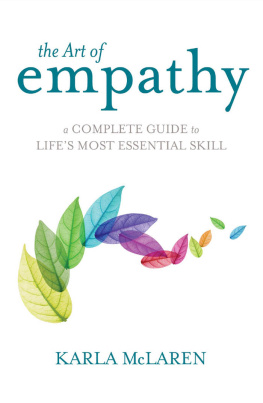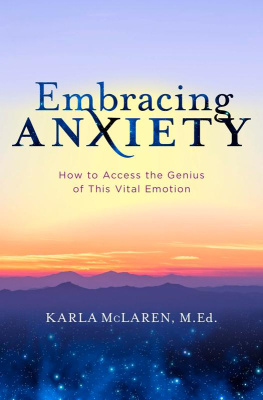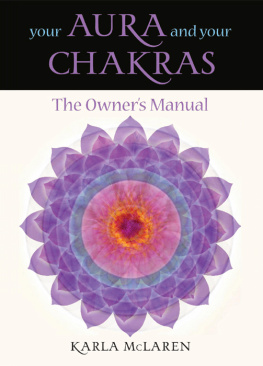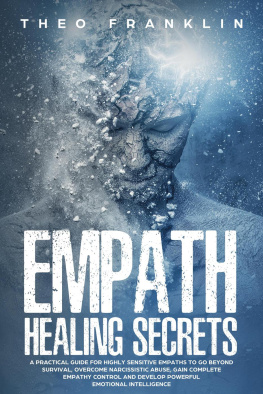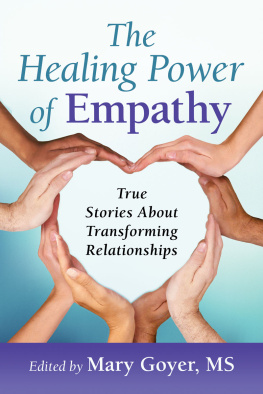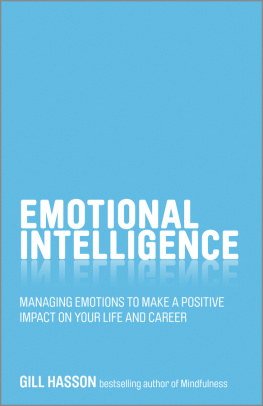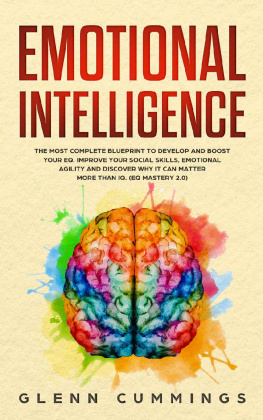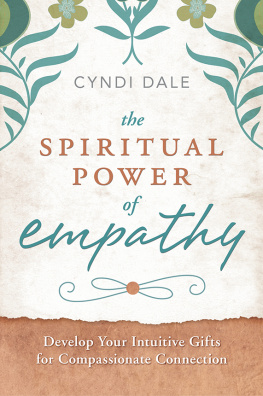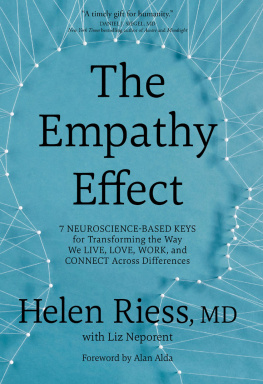
For you who long to connect deeply, to understand clearly, to respond perceptively, and to engage authentically, I welcome you.
Empathy is an art, but you are the artist.
Thank you for bringing your unique empathic artistry to our waiting world.
Contents
PREFACE
A Note to You
WE ALL LONG to be seen and understood, to be valued and honored, and to be loved for exactly who we are. We also want to connect deeply with others, understand them clearly, and respond skillfully to their wants and needs. We want to navigate through difficulties and conflicts with grace, and we want our relationships to be a source of healing, strength, humor, and love. We want empathy, and we want to know how to offer our empathy to others.
Luckily, each of us already has an innate talent for empathy, and most of us developed our capacity for fully compassionate and empathic engagement when we were just toddlers (research suggests that our empathic skills can develop before were two years old; well explore that research in this book). We humans are a deeply and intrinsically empathic specieswe can tune into the emotions, wishes, thoughts, intentions, and hopes of others, and we can make intelligent decisions about how well respond to the information we receive. Through our empathic skills, we can get into sync with others, understand them, and meet their needs in ingenious ways. Empathy helps us witness, engage with, and respond skillfully not only to humans and animals, but also to nature, art, music, ideas, ideologies (such as traditionalism, existentialism, etc.), and even structures (such as buildings, public spaces, and living and working areas).
Empathy is everywhere: its the air you breathe and the ground you walk on; it makes relationships, communities, and societies work. And yet, empathy can also be something of a mystery. Because empathy is such a central part of everything you do, you can overlook it and almost ignore the processes that make empathy work (or stop working). This is actually an important part of how empathy functions, because you dont want to have to think about every piece of empathic information you pick up, then catalog all of it, then reflect on each piece, and then plod through all of your possible responses. In fact, its good that empathy is generally hidden from your conscious notice! But when you want to consciously work with your empathyeither to increase it or to calm it downits very important to be able to enter into that hidden world and understand the processes of empathy very clearly.
In this book, youll learn how to access the often-hidden world of empathy, emotional awareness, and the interactional space that surrounds you. Youll also learn how to bring skills and organization to your empathy so that it will become a dependable and valuable resource for you and your friends, your family, your loved ones, your colleagues, and our waiting world.
But before we begin, we must attend to three pieces of empathic business. First, your health and happiness are important to me. Empathy and emotional sensitivity are essential capacities, but in a relatively insensitive and emotion-averse culture, both can be difficult to manage. This book offers support, ideas, and strategies to help you work with emotions and empathy and to become a healthy and happy empath. But it is important to note that not all aspects of emotional and empathic sensitivity should be addressed through self-help. Therapy, counseling, and (in conditions such as repetitive anxieties, depressions, or rage disorders) medical support are often necessary. Please reach out for the help of professionals if your situation becomes uncomfortable.
Second, the health and happiness of the people Ive worked with are important to me, too. Although this book is based on my lifetime study of emotions and empathy, and by my four decades of empathic work with others, you wont find stories about those individuals here. My empathic work occurs in a private and strongly enclosed sacred space where all emotions are welcomed. As such, things can get very deep, very quickly, and Im not there trying to gather anecdotes for my books. My work is clearly deepened and informed by all of the wonderful people Ive consulted with, but their stories belong to them. As you read, you may notice that I write vignettes about myself, which may seem egocentric; however, Ive chosen to use myself as an example because mine is the only story I have the ethical right to tell. If I do write about others, I protect their identities or I get their permission, or both.
And third, in this post-Internet world, the rules and conventions about using material from blog posts are becoming more formal. Some of the material on empathy and emotions in this book first appeared (in a less detailed form) on my blog at karlamclaren.com or on my authors page at Facebook. Blogging and status writing are special forms of writing that allow me to quickly sketch out ideas (or answer readers questions), and often, those sketches provide an excellent template for the more fully detailed explorations that books allow. In this book, I borrow from and incorporate some of my previous writing; when I do, Ill tell you about it.
In our work together, well enter into the hidden world of empathy so that you can learn how to become a healthy, happy, and intentional empath who works with emotions instead of working against themand instead of being worked over by them! Im happy to tell you that it doesnt matter where you start, what your empathy training was like in childhood, or where you currently reside on the continuum from low empathy to high empathy. No matter where you are, youre a member of an extensively empathic and intrinsically emotive species, and the tools you need to become a skilled empath are waiting inside you. Welcome!
PART ONE
Welcoming Empathy into Your Life
CHAPTER 1
What Is Empathy, and Why Is It Important?
THIS BOOK ABOUT empathy is being written in the second decade of the twenty-first century, when intensive research on empathy is occurring in more than half a dozen academic disciplines. Empathy is hot; its a major topic, and its currently the focus of extensive review, research, and debate. Researchers all over the world are focusing tremendous attention on defining empathy, and many competing views of the components of empathy are being argued about in academic journals and conferences (well explore many of these views in this book). Empathy is a major topic of multidisciplinary and international interest right now.
Empathy is also a major topic of interest in your personal and professional life, where it helps you understand others well enough to successfully communicate and work with them. Empathy is also an essential part of love (though you dont have to love others to empathize with them skillfullyyou dont even have to know them). Empathy helps you connect with others, feel alongside them, understand them, work with them, meet their needs, love them, and be loved by them. Empathy is essential for the health of your relationships, and empathy is fundamental to your social and emotional skills.
Empathyor rather the lack of empathyis also a central feature of modern American politics, where our profoundly polarized political parties are perfect examples of how too much identification with our side and a corresponding lack of empathy for the other side (and even the willingness to create another side) lead directly to unworkable, conflict-based posturing that has essentially paralyzed our entire political process. As we can clearly see by its absence, empathy is crucial to the functioning of all social structureslarge, small, intimate, local, national, and international. So what, exactly, is empathy?
Next page
